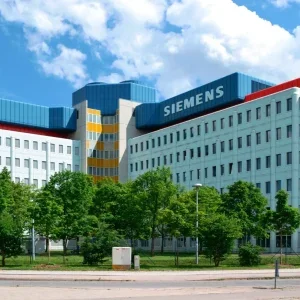
DeepGreen Metals Inc., which is expected to merge with Sustainable Opportunities Acquisition Corporation (NYSE: SOAC) and be renamed ‘TMC the metals company Inc.’ (The Metals Company), today announced the mobilization of its next research campaign, Environmental Expedition 4E, which comes on the heels of the successful completion of Environmental Expedition 5D, which continued research on deep-sea food chains, biodiversity, geochemistry, and nutrient cycles within the NORI-D contract area of the Clarion Clipperton Zone (CCZ) in the Pacific Ocean.
The two expeditions are the latest work packages in the multi-year deep-sea research program intended to establish a rigorous environmental baseline and characterize the potential impacts of The Metals Company’s proposed operations to source critical battery minerals from deep-sea polymetallic nodules.
Dr. Andrew Sweetman, professor and leading researcher of deep-sea ecology and biogeochemistry at Heriot-Watt University in Edinburgh, was a lead researcher onboard Expedition 5D, alongside a team of independent scientists from the Natural History Museum, the University of Leeds, Florida State University and the University of South Florida.
Using three different lander systems—similar in design to Mars landers used by NASA—the 60-strong crew on the Maersk Launcher collected data on the biodiversity and nutrients available on the seafloor, as well as the oxygen and carbon cycling in the abyssal environment. This data is being used to build a model of CCZ ecosystem functions and to aid in the development of equipment and systems which minimize disruption to the deep-sea environment from proposed nodule collection operations.
“My team and I undertook lander operations to gather the best environmental data that we could,” said Sweetman. All of the data collected by Sweetman and the other scientists involved in the company’s deep-sea research efforts will inform its environmental and social impact assessment (ESIA) and will enable informed decision-making and regulatory development in advance of the commencement of a new resource industry which has the potential to provide a secure supply of the critical battery metals required for society’s transition to clean energy.
The next research campaign, Environmental Expedition 4E, will be led by CSA Ocean Sciences Inc. (CSA), which specializes in multidisciplinary environmental impact assessments. This will be the fourth of seven research campaigns to the CCZ that The Metals Company will conduct over a 14-month period. The mission of 4E is to retrieve, recalibrate and redeploy three mooring installations in the CCZ. The data collected from the instruments installed on the moorings provide insights as to the physical characteristics of the water column and inform a model developed to predict how deep-sea sediments disturbed by nodule collection operations will disperse and settle.
“These research expeditions continue to increase our understanding of our operating environment and will help us to model, predict and design mitigation strategies and technologies to minimize the potential impacts that collecting nodules will have on the abyssal CCZ,” said Gerard Barron, The Metals Company Chairman and CEO. “It’s our mission to put forward a rigorous, peer-reviewed environmental impact statement to the International Seabed Authority and to set a high bar for this new industry.”
In addition to developing a comprehensive understanding of its potential impacts, The Metals Company will help advance society’s understanding of the deep ocean by sharing its bathymetric survey data with the global community as part of the International Seabed Authority’s ‘Seabed 2030’ initiative, which aims to develop a definitive map of the world’s seabed by 2030.






